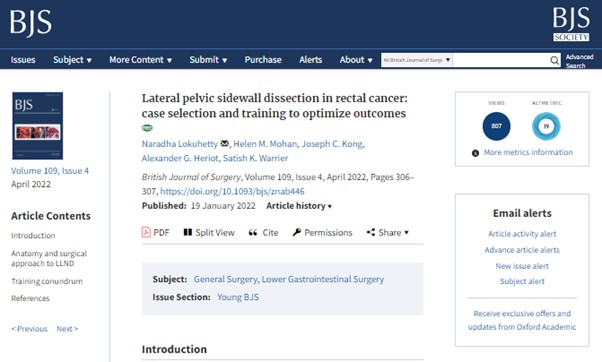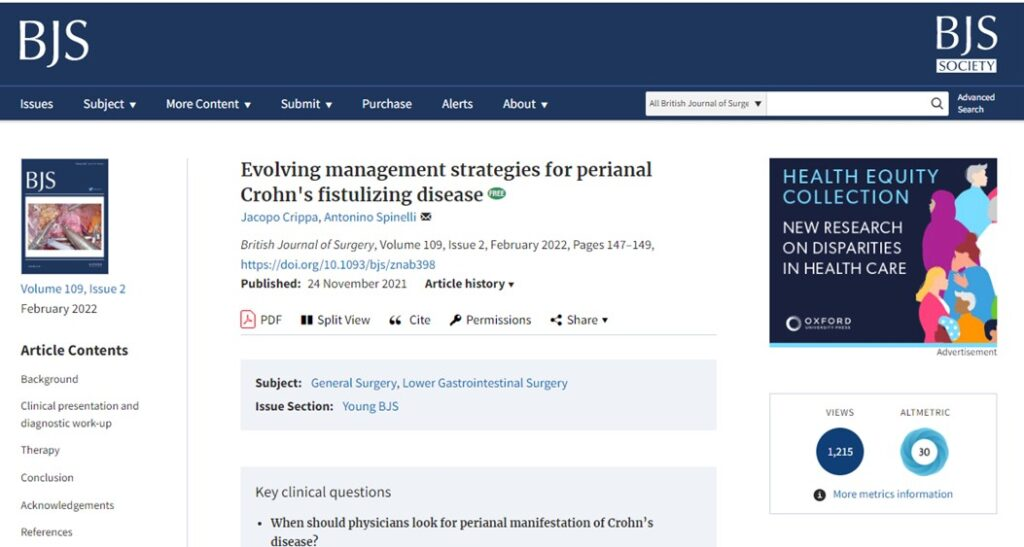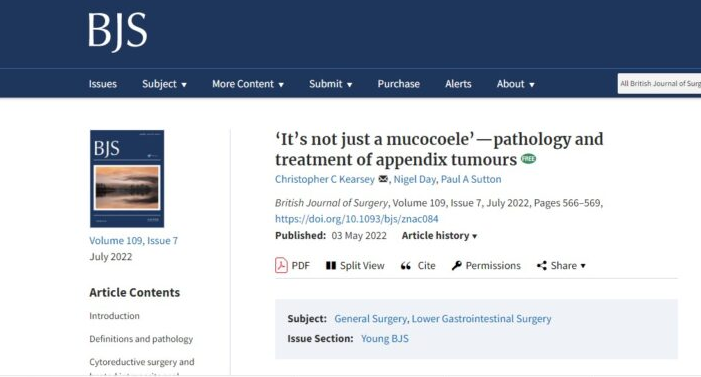BJS Academy>Young BJS>My Night on Call in ...
My Night on Call in India
2 May 2022
Lower GI
Related articles

Lateral pelvic sidewall dissection in rectal cancer: case selection and training to optimize outcomes
Naradha Lokuhetty, Helen M. Mohan, Joseph C. Kong, Alexander G. Heriot, Satish K. Warrier British Journal of Surgery, Volume 109, Issue 4, April 2022, Pages 306–307 Comment: which patients benefit, and how will surgeons be trained?

Evolving management strategies for perianal Crohn’s fistulizing disease
Jacopo Crippa, Antonino Spinelli British Journal of Surgery, Volume 109, Issue 2, February 2022, Pages 147–149 Comment: the authors recommend integrating medical and surgical management.

“It’s not just a mucocoele” – pathlogy and treatment of appendix tumours.
Christopher C Kearsey, Nigel Day, Paul A Sutton
Comment: If diagnosed, the patient should be referred to a specialist centre.
Copied!
Connect

Copyright © 2026 River Valley Technologies Limited. All rights reserved.








.jpg)



